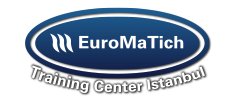Overview:
Introduction
Advanced Event Management is a program that focuses on the planning, coordination, and organization of events for individuals and groups. It is a specialized program that offers in-depth knowledge and practical skills for organizing large-scale events.
Program Objectives
At the end of this course the participants will be able to:
- Familiarize yourself with the management skills and strategies essential for successful event planning, promotion, execution, and evaluation.
- Gain knowledge of the role and purpose(s) of special events in the organization.
- Learn how to design successful special events using the tools and strategies that are required.
- Acquire the information and skills necessary to plan, implement, and run unique events
- Acquire the skills and information needed to evaluate the quality and success of special events
Targeted Audience
This course is designed for professionals involved in public relations, event management, business etiquette and protocol activities.
Course Outlines
Unit 1:
The Event Project
- The modern events industry; categories, sizes and scopes of events.
- Events as projects, adapting project management techniques.
- Event stakeholders.
- Event creation, the “five Ws”, feasibility, the “WOW factor”, themes.
Unit 2:
Event Personnel
- The event manager’s roles and obligations, as well as the talents, abilities, and expertise required
- Make-up and personnel teams, as well as creative teams, are part of the event teams.
- Managing a variety of people and teams on a short-term basis.
- Interpersonal communication abilities, decision-making abilities, and time management abilities
Unit 3:
Event Planning
- The concept and goal of the event, as well as the vision and mission statements.
- Setting SMART goals, and doing a SWOT analysis.
- Lead time, event dates, influencing circumstances, and venue concerns.
- Event action plans, a business plan for the event, and event documentation
Unit 4:
Event Budgets & Finance
- Financial projections and forecasts, budget development, and budgetary control
- Entry and entrance fees, sponsorship, merchandise sales, and concessions are all sources of revenue.
- Items that are commonly used to cover the costs of an event.
- Final accounts, accounting and control, and financial planning
Unit 5:
Corporate Sponsorship
- What sponsorship involves, benefits sponsors seek
- Identifying, contacting, and negotiating with possible sponsors.
- Sponsorship packages: common features, pricing considerations, and associated expenses
- Proposals, documents, agreements, or contracts for sponsorship; ongoing relationships with sponsors.
Unit 6:
Event Venues, program, and schedule
- Location, dimensions, surroundings, facilities, dates, and availability are all basic and crucial elements in venue selection and suitability.
- Prices and terms, rental agreements, conditions, booking.
- Organizing supplies, services, equipment, and furnishings for events, as well as food and refreshments.
- Main, core, secondary, support, and ancillary activities.
- Multiple and concurrent activities, Gantt charts, and timing and sequencing of event activities,
- Contingency plans.
- Production of printed programmes.
Unit 7:
Legal Issues & Insurance for Events
- Responsibilities under the law, copyright, licences and permits, sanctioning, performing rights, disability issues.
- Features of legally binding contracts and agreements.
- Quotations for supplies of goods and services, purchase orders.
- Insurance cover, claims, indemnity.
Unit 8:
Logistics & Production, Health, and safety
- Identifying the resources required; planning logistics to enable the smooth flow of resources, materials, people, access, and egress.
- Equipment and services should be placed safely, and sanitary facilities should be available.
- Information, safety, welfare signage, emergencies, and site/venue maps
- Litter and waste management
- Risk assessments, risk management, and accident prevention
- Crowd control, crowd dangers, queue management, and the usage of barriers and fencing
- Planning and procedures for incidents and emergencies, safe evacuation, and show stops.
- Hazards associated with transportation and electricity
Unit 9:
- Marketing & Promotion
- Promotional campaigns to raise public awareness of an event.
- Market research and strategy, SMART marketing objectives, and the marketing mix
- Printed materials, media advertising, online advertisements, websites, and viral marketing are all examples of marketing tactics.
- Evaluation and reports following the event, as well as audience research.
Unit 10:
Starting and Building Events Businesses
- Reasons for starting events businesses, finding a niche, deciding types of events to focus on, and the right business unit.
- Working from home with a business idea and funding.
- Client retention, social media, websites, recommendations, and goodwill
- Structures of fees, accounting, and insurance.


